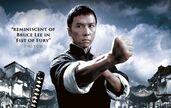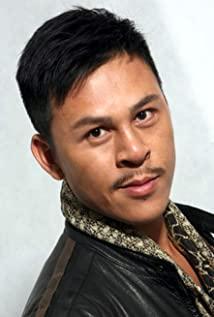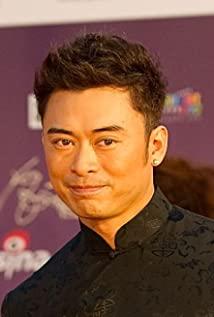The above two films should be enshrined as classic templates for Chinese commercial films, and they are worthy of repeated scrutiny and research by students who are studying film management. As for those film and television enthusiasts who worship the art film, they will continue to withstand more difficult and dangerous tests of reality and will say to their ideals in the impact of the tide of material desire ByeBye: Put away the supreme and inviolable elites. Face it, Gestalt, Psychoanalysis, Mets, J.J. Murphy, Angelopoulos, and go all out. There is no era that needs a creed more urgently than today: study the audience-this is you The most reliable way to success!
Then we see what else we can leave in the dizzy carnival? Forget it, maybe this is not important at all. What is important is the dizziness and the carnival itself. What is important is how much power we really have in our hands. The coming of this power does not come from our surging passion and self-sacrificing spirit. The feat comes from real wealth and power. This is an authentic theorem, a theorem that can withstand thousands of trials, and it doesn’t care how we can convince ourselves.
After all, we are all translators in reality, not Ye Wen, and we have almost no choice.
When Ye Wen in "Ip Man" defeated the audience's imaginary enemy, he has become a perfect symbol full of religious colors. The national sentiment of the masses was provoked, and uncontrollable passion spread in the chest. We stood up and applauded, we raised our arms and shouted, we were immersed happily in the YY to a perfect image, as if our own body was melting into the great personality of a national hero, although in reality, this is just an illusion.
The translator played by Hong Kong actor Lin Jiadong was hidden in the dizzy carnival. This is an extremely plump reality, enough to leave his trace in the history of film.
"Translator"-we have become accustomed to this role to the degree of numbness. From "Tunnel War" to "Devil Is Coming", this has always been a hateful image symbol with a collection of thousands of ugliness and one. In the history of the War of Resistance Against Japan, the more numerous and more resenting crowd-the "Japanese Puppet Army" was placed as an embarrassing existence. That group of real "stray dogs", 1.5 times the strength of the Japanese invaders in China, had ruthlessly killed their compatriots in history and used their bodies to forge the indestructible defenses of the Plaster Banner Division. The proud achievements of the soldiers and civilians of the Anti-Japanese War are all filled with the bones of millions of Japanese puppet troops, but the number of "imperial troops" who were actually killed in the "China" land is only more than 200,000... What a fascinating thing A vigilant fact? In the film and television works, "translators" have replaced these people as the target of verbal criticism. In Shan Dabai’s autobiography "I am a Japanese Translator", he carefully described the helplessness and sadness of the little people wandering through the slits of the times, allowing readers to have a clearer and fuller understanding of the image of "translators". Regardless of whether Comrade Ye Weixin has read this book, perhaps he has already accumulated a strong desire for redress in the long misreading of films and television, so he has created a different translator like "Li Zhao", thus contributing to the "Ye "Question" adds more implication and strength.
Looking back at the whole film, "Li Zhao" can be said to be the character with the most pen and ink other than "Ye Wen", but in fact, Lin Jiadong has also portrayed it more fully and brilliantly. This character fits Sid Field's screenwriting principles very well. From beginning to end, he is full of "self-awareness" as the subject, and the trajectory of personality change is clearly visible. At the beginning of the film, Li Zhao appeared as a police officer in Foshan, and in his words and demeanor, he showed this little man's peculiarities and tricks to the fullest. After the Japanese occupation of Foshan, he was forced to act as an interpreter for his livelihood. Ye Weixin cleverly arranged one. Details: When Li Zhao kept the Ye Wen family in his home to avoid the eyes and ears of the Japanese army, we saw the embarrassment of the old and weak women and children in his family through the camera lens. As an ordinary person who does not know how to work hard and is greedy for life and fear of death, he can only stand by himself with a fluent foreign language. It is simply unreasonable not to choose to be a translator! Recruiting human flesh sandbags for the Japanese army was forced on the one hand by licentious power, and on the other hand, it also took into account the importance of that bag of "white rice" to the villagers. Nevertheless, the death of Wu Chilin still deeply shocked him. This is a The response that ordinary people with a conscience should have, since then, his motivation for behavior began to quietly change, and the swearing and blame of everyone has fulfilled his own roar from the bottom of his heart:
I'm just a translator, I'm not a running dog!
If at this moment, this roar still has the color of self-blame and cowardice that Li Zhao can't hide, the subsequent rescue of the "Master Ye" family has become a clear proof that he has a clear conscience. On the one hand, it is the survival crisis of Japanese coercion and embarrassment. On the other hand, it is the question of national self-esteem and responsibility for the safety of the "Ye Wen" family. Li Zhao wanders between the two as if walking on thin ice, resulting in dramatic tension. Far surpassing the male pig scripter, and thus produced two of the most wonderful lines in this film:
One is when General Miura asked about Ye Wen's surname, Ye Wen replied:
I am a Chinese!
Li Zhao translated Ye Wen's sentence into:
his name is Ye Wen!
The other is that when Miura invited Ye Wen to be his martial arts coach, Ye Wen sternly refused and challenged him.
Li Zhao is
eager to learn from wisdom, and translates it as: Mr. Ye will seriously consider the invitation and hope to learn martial arts with you.
Li Zhao’s translation of these two sentences made all the little people who are struggling to survive in the big age know their minds. These people have no lofty ambitions, nor the dazzling brilliance of heroes, but they are hidden in the depths of their hearts. The charm of human nature is flickering. At the end of the film, it was such an unremarkable little figure who saved the life of our Gao Daquan Master Ye, and at the same time successfully completed this character's self-salvation.
Ye Man is undoubtedly the sacred and unattainable, which is always unattainable, because he is a perfect image. In contrast, Li Zhao's human charm is more practical, reliable, and sincere. It is a pity that even such a person is not seen everywhere today. More people have done what "translators" have done but never thought of achieving self-salvation in some way, or even if they thought of it, they couldn't muster the courage to perform it seriously. Stupid Bs always have stupid Bs to support, and Yangchun Baixue will be spurned by others. This is a more complicated and tangled reality outside the screen.
But in any case, it is a noble thing to be a translator who is not a running dog.
At least, I firmly believe so!
View more about Ip Man reviews











